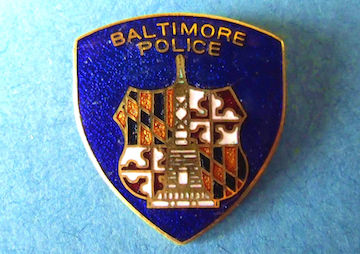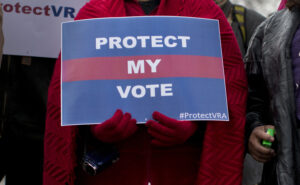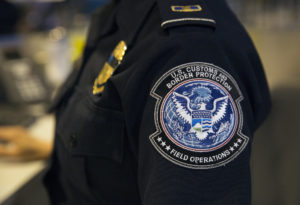2,000 Cases in Baltimore Could Be Overturned Because of Unlawful Police and Prosecutor Collusion
More than 2,000 criminal cases in Baltimore could be thrown out as a result of a retrial motion accusing the state's attorney’s office and police of “deliberate and willful misrepresentation” of their methods of evidence collection -- and attorneys say there may be many more such cases. Dave Conner / CC BY 2.0
Dave Conner / CC BY 2.0
More than 2,000 criminal cases in Baltimore could be thrown out as a result of a retrial motion accusing the state’s attorney’s office and police of “deliberate and willful misrepresentation” of their methods of evidence collection — and attorneys say there may be many more such cases.
At the center of the dispute is a device called a “stingray.” About the size of a briefcase, it functions as a fake cellphone tower that extracts metadata, location information and in some cases content from cellphones.
The stingray is among the evidence- and intelligence-collection tools that the federal government apparently wishes to keep hidden from the public — so hidden that an investigation by The Guardian in April revealed that the FBI required local police departments and prosecutors to sign a nondisclosure agreement preventing them from revealing their use of the device. The agreement compelled prosecutors to go as far as withdrawing or dropping cases in which stingray use might be exposed.
Attorney Josh Insley, who filed the motion on behalf of a client, told The Guardian: “It shocks the conscience that a police commissioner and an elected State’s Attorney would conspire to commit obstruction of justice unless the FBI told them they could disclose.”
The Guardian reports:
Defence attorneys and civil liberties activists told the Guardian that prosecutors and police departments go to extraordinary lengths to avoid being forced to reveal their use of these devices. They do this by using Stingrays in the first instance, then reverse-engineering a case which they can safely bring to trial without mentioning the surveillance equipment.
In other instances, according to Nate Wessler, a staff attorney at the ACLU’s speech, privacy and technology project, police would present “inscrutable euphemisms” to courts.
“Terms like ‘we located this phone using information from a confidential source’, which sounds a whole lot like they had an informant; it doesn’t sound like they were using a sophisticated electronic device forcing all phones in the area to report back,” Wessler told the Guardian. “Those efforts to hide what the police were doing are very difficult to smoke out.”
“It’s really very frightening,” Natalie Finegar, the deputy public defender for Baltimore city, told the Guardian. She said that her office was starting the process of going through their clients’ cases to see if the police and prosecutors had committed a “discovery violation” in not disclosing the use of Stingray devices – starting with currently incarcerated clients.
Finegar said that it was “too early to tell” how many cases might be affected. “We know there’s 2,000 potential cases,” she told the Guardian, “but there may be more.”
Read more here.
— Posted by Alexander Reed Kelly.
Your support matters…Independent journalism is under threat and overshadowed by heavily funded mainstream media.
You can help level the playing field. Become a member.
Your tax-deductible contribution keeps us digging beneath the headlines to give you thought-provoking, investigative reporting and analysis that unearths what's really happening- without compromise.
Give today to support our courageous, independent journalists.






You need to be a supporter to comment.
There are currently no responses to this article.
Be the first to respond.